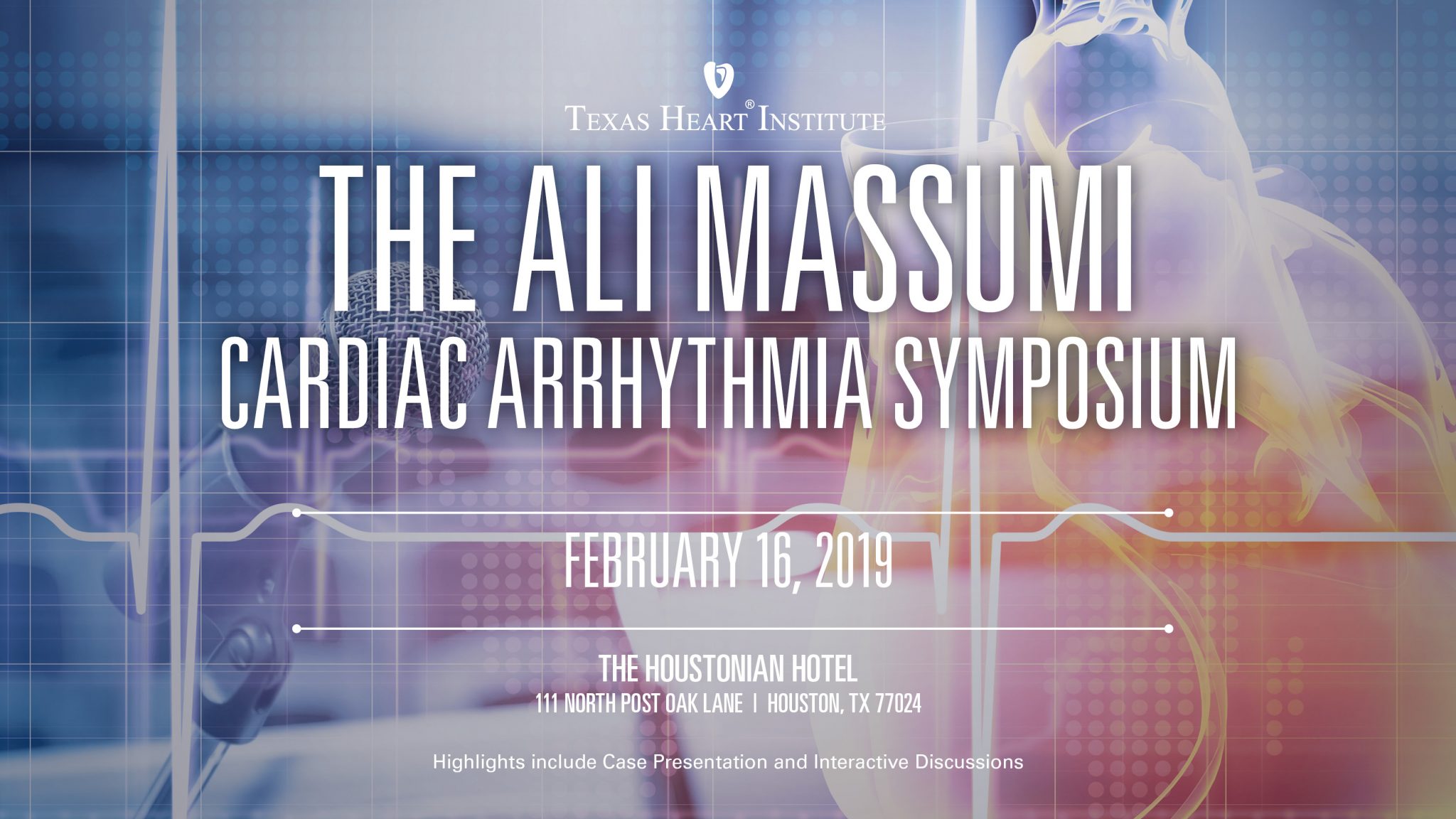The Ali Massumi Cardiac Arrhythmia Symposium 2019

Recognized as an accredited provider for over 35 years and awarded Accreditation with Commendation by the Accreditation Council for Continuing Medical Education (ACCME), Texas Heart Institute’s Office of Continuing Medical Education (CME) provides comprehensive and innovative symposia that are designed to increase medical knowledge and skills, and ultimately change practice behavior, methods or procedures in cardiovascular medicine and other medical specialties.
An annual tradition, The Ali Massumi Cardiac Arrhythmia Symposium, led by Course Director, Mohammad Saeed, MD, is designed to provide electrophysiologists, cardiologists, internists, and associated professionals with state-of-the-art information on the fundamental mechanisms of cardiac arrhythmias and the best practice approaches to clinical diagnosis, evaluation, and management of abnormal heart rhythms.
The field of cardiac electrophysiology has evolved from a specialty that primarily managed arrhythmias with drug therapy to one with an expanded role of various nonpharmacologic therapies in detecting and terminating arrhythmias. Representative of this development are the rapidly evolving treatment options for patients with ventricular tachycardia and fibrillation (VT/VF), the most common cause of sudden cardiac death.
Pharmacotherapy has not proven to be an adequate treatment option for many of these patients. Although implantable cardioverter defibrillators (ICDs) are effective in terminating VT/VF, but repetitive shocks significantly impair quality of life, and inappropriate ICD shocks in patients with heart failure are associated with increased mortality. Percutaneous catheter ablation has evolved as a promising therapy, particularly in patients with recurrent VT refractory to drugs.
There have also been recent changes to the way we manage patients with atrial fibrillation (AF). Guidelines for the use of anticoagulants have been updated and expanded. There are non-pharmacologic therapies now available to prevent embolic stroke in patients who are at increased risk of bleeding. Catheter ablation for AF has become a mainstream treatment option. New catheters with force sensing technology have improved outcomes and reduced complications.




